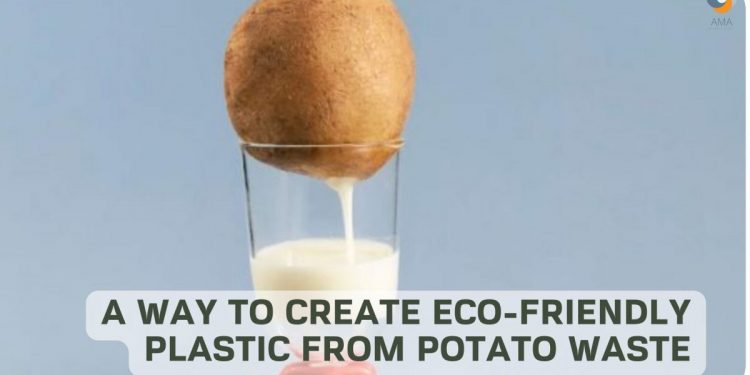Since its founding in 2011, global manufacturer BioLogiQ has been working on a way to create eco-friendly plastic products made from renewable materials like potato waste.
“[…] We started making plastic from potato waste, specifically the starch from the potato waste,” BioLogiQ CEO Steven Sherman recently told the Idaho Statesman.
Traditional plastics are composed of polymers – a substance consisting of large molecules repeated many times – such as polyethylene and polystyrene. These polymers can take hundreds of years to degrade.
BioLogiQ inserts its own “iQ technology” into other plastic products, called NuPlastiQ. The “iQ technology” contains substances like potato, corn starch, or naturally sourced glycerin obtained from vegetable oils and animal fats.
When BioLogiQ’s technology is combined with other plastic products, it allows the plastics to degrade faster because microorganisms that eat the plastics have a much easier time breaking down things like starch and glycerin. Up to 30% of a product can include NuPlastiQ.
Plastics without BioLogiQ’s technology take so long to degrade because the molecules are too large for microorganisms to eat. Over time, the plastic eventually breaks down into smaller pieces due to fragmentation, caused by sunlight and oxidation, until it is finally small enough for microorganisms to eat.
More than 10m tons of plastic are dumped into the ocean every year, according to U.S.-based nonprofit Plastic Oceans International.
It can take more than 400 years for plastic to degrade, and 8.3bn metric tons of plastic have been manufactured since the mid-1900s, according to National Geographic. Disposing of such a large quantity of plastic waste in the environment has been a question that has stumped scientists for years.







